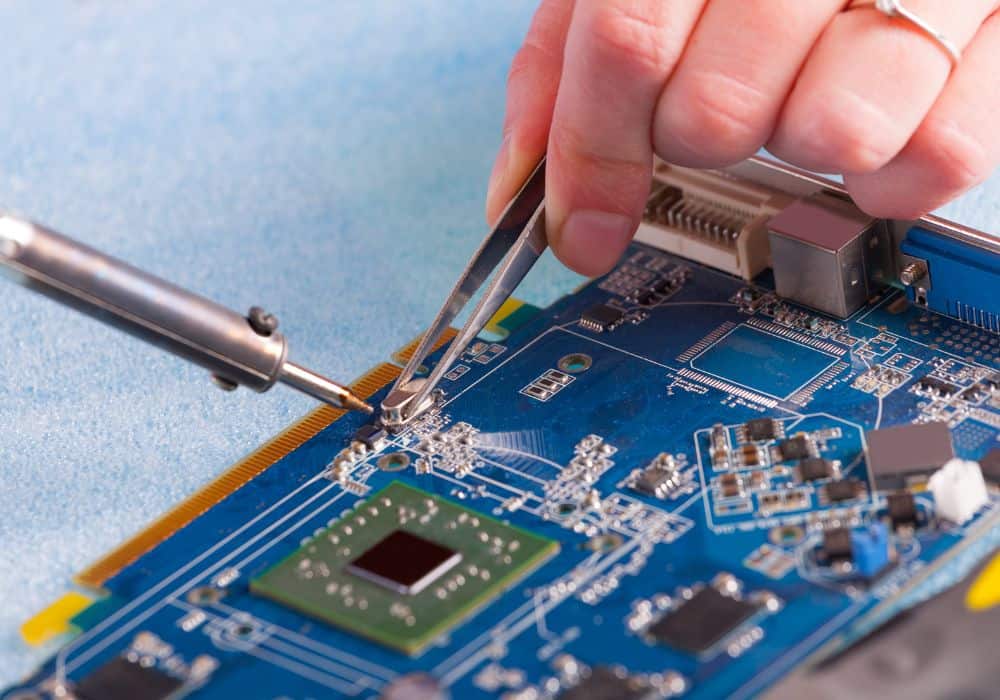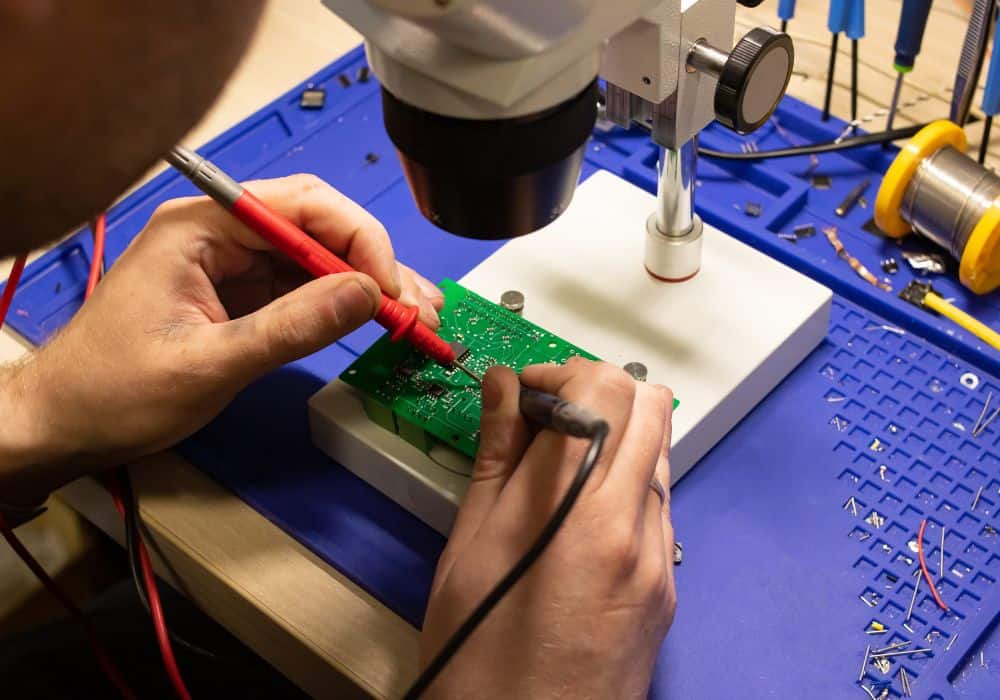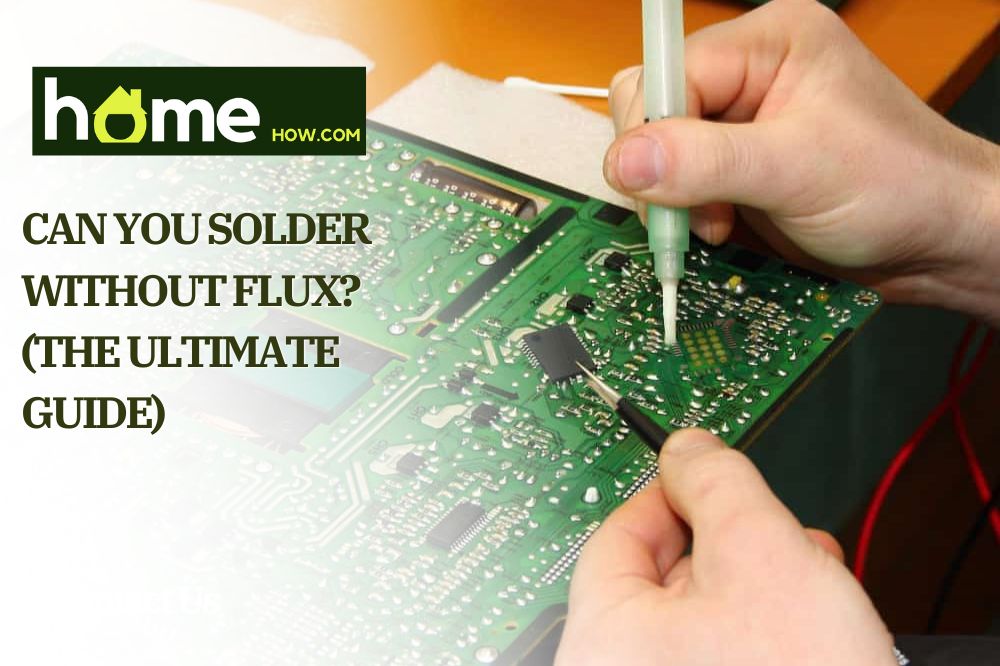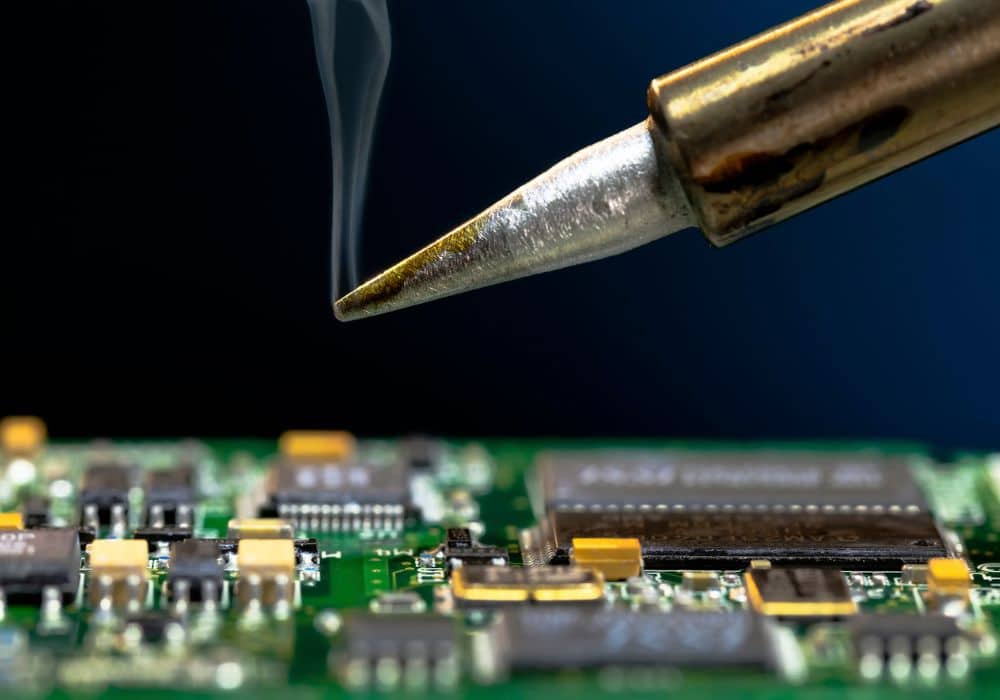Soldering is, putting or joining two or more things together by melting and placing a filler metal in between. Soldering is used in everything from repairing pipes and roofs to fixing electronics, creating jewelry, and more.
It can be quickly done in the comfort of your home, so long as you have a soldering iron and solder material. But what about flux?
Although many think flux is essential to a successful solder, we’re here to tell you that you have options. And depending on the job you’re doing, cheaper alternatives can be just as good (if not better!)
This article will explain how you may do your soldering jobs without using commercial flux. We’ll explain three popular options, highlighting their pros and cons, and share expert solder tips to ensure your bond will last time.

What is flux? And is it needed?
Because many metal surfaces and components can become oxidized (rust) over time, connecting them by soldering can be difficult. The layer of rust limits the solder, reduces heat application, and results in a weaker joint. That’s why flux is often an essential requirement.
Flux essentially cleans the surface of the pieces being connected. Made of a cleaning agent, activator, and wetting agent, flux ensures better heat application during soldering and contact between both components.
Also, using flux has protective qualities, as it prevents airflow from reaching components, protecting them from future oxidation. Different types of flux are known to boost conductivity, making it an incredibly supportive adhesive for electronics.
Can you solder without flux?
Now that we know how vital flux is to soldering, you might wonder – why would you not use it? 99% of the time, you should use flux for your soldering jobs. There are tailor-made for different DIY jobs. And most soldering irons and accessories are made with flux in mind.
That said, there are exceptions. And many homeowners swear by alternative adhesives to help secure a tight connection.
Below are three popular and effective ways to solder your joints without using traditional flux.
1. Rosin core
If you’re doing delicate electronic work, no doubt you want to be safe and cautious when soldering. Sometimes, using flux can be counter-productive because you cannot clean the resin afterward, and ingredients may cause electronic failure and current leakage.
Using something like rosin core is much more practical and safer. Made from pinecones and denatured ethyl alcohol, rosin core can clean surfaces and prime materials before soldering, like any commercial flux.
It is an excellent choice for small circuits, wiring, and more, making the rosin core an ideal substitute because it is less likely to pull off components or cause short-circuiting.
Additionally, the rosin core does not leave behind any residue. The rosin core has a higher melting point and may take longer to heat, so care and attention are essential. Its chemical compounds may also produce toxic fumes, so wear protective gear and work in a well-ventilated room.
2. Petroleum Jelly
More commonly known as Vaseline, petroleum jelly is a practical, cheap, and easy-to-work-with substitute for flux. Made from a mix of mineral oils and waxes, you most likely have a tub already somewhere in your home.
The jelly works by creating a barrier to prevent metal oxidation. It has a very low melting point of 100°-130° F (38° to 54° C), making it relatively easy to manipulate and apply.
Petroleum jelly is also an effective cleaner. Because its active ingredients contain fewer toxins than rival commercial fluxes, it’s ideal for delicate, up-close work such as electrics and circuit boards.
That said, there are some issues with using petroleum as a flux. The most obvious, of course, is the mess. It can be challenging to clean up, and because of the low melting, it can run quite quickly if you apply too much.

3. Lemon juice
Yes, you read that correctly – lemon juice can be a substitute for flux. That’s because the citric acid in the juice is an ideal cleaner and can help dissolve any oxidized surface layers. This ensures your solder will have a clean, close application.
Lemon juice is a favorite among many homeowners because you will most likely have it in your refrigerator or kitchen countertop. They’re cheap and widely available, and they make the solution straightforward. Simply strain the juice from your lemon and stir the mixture for a few minutes to separate the chemical compounds.
That said, as an acidic substance, lemon juice can be corrosive, so there is a potential to damage whatever surfaces you are working on or soldering together.
They are arguably best used in plumbing soldering, where appearances don’t necessarily matter, and you want a strong cleaning application. Avoid using lemon juice in smaller, intricate work involving electronics or wiring.
Benefits of soldering without flux
As practical and versatile as flux can be, commercial products have certain drawbacks. These include:
- Flux residues can be pretty challenging to remove and may also stain or detract from the appearance of surfaces.
- Flux can make protective, conformal coatings fail, exposing specific circuits to rust.
- In specific work environments where regular QC inspections must occur, flux can obstruct vision and make examinations almost impossible.
- Uneven heating and application can lead to no-clean flux activators to cause corrosion and dendrite growth.
That said, there is one core problem with using other alternatives to flux, and that is cold solder joints. This is when the solder fails to form a proper joint. Improper melting, reflow, or wetting can happen quickly without flux.
Expert Tips
Whether you’re using flux or not, here are some soldering tips to ensure you make the best possible joint, irrespective of the method:
- Always ensure you wear protective clothing during the soldering process. Melting material can cause severe burns and damage nearby surfaces.
- Most modern solders contain a built-in rosin core, meaning the need for additional flux is minimal. Older, solid-core solder will most likely require some flux to operate successfully.
- Products that contain isopropyl alcohol are especially effective at small, intricate work, as the alcohol prevents the flux from splattering and dissipating.
- Also, ensure you work in a well-ventilated room, as certain toxins from solvents, liquid flux, and non-flux material can be released when exposed to extreme heat.
- Never use refrigerated lemon juice as an applicator. Cold temperatures can significantly reduce its potency.
- If appearances matter, consider using water-soluble flux and adhesives. You will be able to wipe them away after the soldering process.
- Always start with a clean soldering tip and cone, and regularly clean them with a brass or a wet sponge. This ensures it comes in contact with the respected materials.
- Use higher heat in the shortest time possible, saving you time and keeping soldering pads in better condition for longer.
- Applying small amounts of solder at a time is better – you can always add more to improve the connection. Too much soldering can crack, bubble, and is ultimately hard to remove.
- Accessories like a flux pen can be handy when only a tiny amount of solder is required, or you’re worried about applying too much material.
- Deionized water can be a better cleaning product than detergents for cleaning excess residue. It contains no chemicals and thus will not leave stains or marks.
Conclusion
Whether repairing a pipe or fixing a broken circuit board, soldering is one of the most valuable and cost-saving jobs you can do yourself. But there’s much to consider when creating the best bond between two or more materials.
As our article has shown, although flux is often the most popular choice to help in soldering, it’s not your only choice. In fact, for some jobs, there are cheaper, easier adhesives that can outperform commercial products.
Rosin core, petroleum jelly, and even simple lemon juice can strip oxidized layers like rust and dirt off metals, ensuring a direct bond is made. Some of these products contain fewer toxins, protecting you and your product from corrosion and damage.
And because they’re around your home anyway, they offer a cheap and easy way to apply a bond. What’s more, these agents can be easily cleaned afterward, dramatically improving the appearance of your work versus commercial or industrial flux.
If you still have questions about the type of flux you should use or want to share your experiences, please comment below.
Remember:
- The main job of soldering flux is to clean surfaces and support the formation of a joint.
- The three most popular substitutes are petroleum jelly, lemon juice, and rosin fluxes.
- Regardless of which agent you use, always wear protective gear and work in a well-ventilated room.

